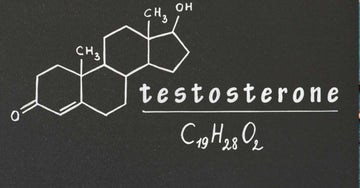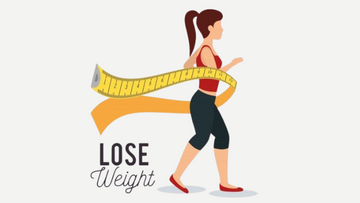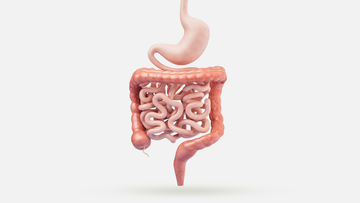Top Testosterone Myths to Leave Behind in 2024

Testosterone is a hormone that often sparks curiosity, debate, and, unfortunately, plenty of misconceptions. From its effects on aggression to its role in women's health, testosterone myths can create confusion and prevent people from fully understanding its importance. As we head into 2025, it’s time to set the record straight. Let’s debunk some of the most common myths about testosterone and uncover the truth about how it affects men and women alike.

Myth 1: Low T Is Easy to Identify Based on Symptoms
Many assume that low testosterone is always obvious, with symptoms like fatigue, low libido, and mood swings being dead giveaways. While these can be signs of low T, they overlap with other common conditions like depression, stress, or even sleep deprivation. This overlap often makes diagnosing low testosterone more complicated than people think.
In fact, only 5.6% of men with low testosterone had any symptoms at all. This means that a majority of men in the study had low testosterone levels but no symptoms of low libido, erectile dysfunction, osteoporosis or fracture, sleep disturbance, depressed mood, lethargy, or diminished physical performance.
Men who do have symptoms of low testosterone often attribute these symptoms to aging or lifestyle factors, completely unaware there is something bigger at play. This underscores the importance of proper testing rather than relying solely on self-diagnosis.
Myth 2: High Testosterone Leads to Aggression
The connection between testosterone and aggression is one of the most pervasive myths. Media portrayals of testosterone-fueled aggression have painted an inaccurate picture of how this hormone actually works. While testosterone does influence behaviors like confidence the idea that it directly causes aggression is overly simplistic.
Research has shown that testosterone and aggression are linked through complex social and environmental interactions, not a direct cause-effect relationship. A study in nature highlights that testosterone often promotes prosocial behaviors, such as fairness and cooperation, rather than aggression.
The myth likely stems from rare cases of artificially high testosterone levels caused by steroid, which can lead to mood instability.
It’s time to separate fact from fiction: testosterone doesn’t inherently make you aggressive.
Myth 3: Testosterone Replacement Therapy (TRT) Is Only for Bodybuilders
Another widespread misconception is that TRT is only for athletes or bodybuilders looking to bulk up. While testosterone replacement therapy can help improve muscle mass, its benefits go far beyond physical appearance.

TRT is a medically supervised treatment designed to address clinically low testosterone levels, improving overall health and quality of life.
For example, TRT has to reduce symptoms like fatigue, depression, and poor concentration. It can also enhance in men with low testosterone. This therapy is not about “hacking” your body for vanity — it’s about restoring balance and addressing legitimate health concerns.
If you’ve ever thought TRT was only for gym enthusiasts, it’s time to leave that myth behind in 2024.
Myth 4: Testosterone Is Only for Men
One of the most overlooked facts about testosterone is that it’s essential for women, too. While men produce higher levels of this hormone, testosterone is crucial for women’s health, playing a role in muscle strength, energy levels, and sexual health.

Women with low testosterone may experience symptoms like fatigue, reduced libido, and difficulty building muscle — issues that can be addressed with the right hormonal care.
Testosterone isn’t just a “male hormone.” It’s a vital component of overall health for everyone, regardless of gender.
Moving Forward: What to Do If You’re Concerned About Testosterone
Now that we’ve debunked these myths, it’s time to focus on what really matters: understanding your hormone health. Whether you’re experiencing symptoms like fatigue, trouble focusing, or low motivation, here’s what you can do:
- Get Tested: The only way to know your testosterone levels is through professional testing. Don’t rely on guesswork.
- Prioritize Lifestyle Changes: Regular exercise, a balanced diet, and adequate sleep can naturally support healthy testosterone levels.
- Consult a Healthcare Provider: If low T is confirmed, discuss options like testosterone replacement therapy to determine the best approach for your needs.
Debunking Testosterone Myths for a Healthier You
As 2025 begins, let’s leave outdated misconceptions behind and embrace a clearer understanding of testosterone’s role in health and well-being. From its impact on men and women to the realities of therapy and behavior, the truth is far more nuanced — and empowering — than the myths suggest.




